
Jack Dawkins, better known as the Artful Dodger, is a character in Charles Dickens's 1838 novel Oliver Twist. The Dodger is a pickpocket and his nickname refers to his skill and cunning in that occupation. In the novel, he is the leader of the gang of child criminals on the streets of London trained and overseen by the elderly Fagin. The term has become an idiom describing a person who engages in skillful deception.

Wild Palms is a five-hour miniseries which was produced by Greengrass Productions and first aired in May 1993 on the ABC network in the United States. The sci-fi drama, announced as an "event series", deals with the dangers of politically motivated abuse of mass media technology and virtual realities in particular. It is based on a comic strip written by Bruce Wagner and illustrated by Julian Allen first published in 1990 in Details magazine. Wagner, who also wrote the screenplay, served as executive producer together with Oliver Stone. The series stars James Belushi, Dana Delany, Robert Loggia, Kim Cattrall, Bebe Neuwirth, David Warner, and Angie Dickinson. The episodes were directed by Kathryn Bigelow, Keith Gordon, Peter Hewitt and Phil Joanou.

Olive Carey was an American film and television actress, and the mother of actor Harry Carey Jr.

What Happened to Mary is the first serial film made in the United States. Produced by Edison Studios, with screenplays by Horace G. Plympton, and directed by Charles Brabin, the action films starred Mary Fuller.

While the City Sleeps is a 1956 American film noir directed by Fritz Lang and starring Dana Andrews, Rhonda Fleming, George Sanders, Howard Duff, Thomas Mitchell, Vincent Price, John Drew Barrymore and Ida Lupino. Written by Casey Robinson, the newspaper drama was based on The Bloody Spur by Charles Einstein, which was inspired by the case of Chicago serial killer William Heirens. Five decades after the film's release, critic Dennis Schwartz wrote, "Fritz Lang ('M') directs his most under-appreciated great film, more a social commentary than a straight crime drama."
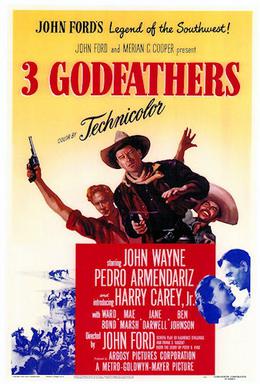
3 Godfathers is a 1948 American Western film in Technicolor directed by John Ford and starring John Wayne, Pedro Armendáriz and Harry Carey Jr.. The screenplay was written by Frank S. Nugent and Laurence Stallings based on the 1913 novelette The Three Godfathers by Peter B. Kyne. The story is a loose retelling of the biblical Three Wise Men in an American Western context.

George E. Marshall was an American actor, screenwriter, producer, film and television director, active through the first six decades of film history.
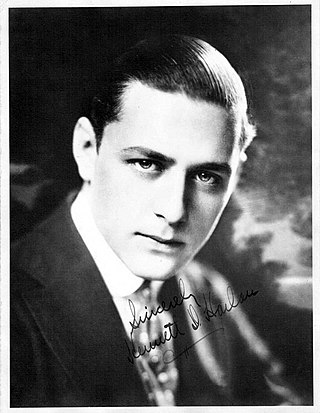
Kenneth Daniel Harlan was a popular American actor during the silent film era, playing mostly romantic leads or adventurer roles. His career extended into the sound film era, but during that span he rarely commanded leading-man roles, and became mostly a supporting or character actor.
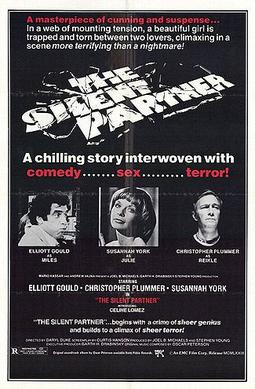
The Silent Partner is a 1978 Canadian thriller film directed by Daryl Duke and starring Elliott Gould, Christopher Plummer, and Susannah York. The screenplay by Curtis Hanson is based on the novel Think of a Number by Danish writer Anders Bodelsen.

Crane Wilbur was an American writer, actor and director for stage, radio and screen. He was born in Athens, New York. Wilbur is best remembered for playing Harry Marvin in The Perils of Pauline. He died in Toluca Lake, California.

Friends is a 1912 film written and directed by D. W. Griffith and starring Mary Pickford, Henry B. Walthall, Lionel Barrymore, and Harry Carey. Walthall and Barrymore portray two old friends who each wind up involved with a beautiful girl (Pickford) who lives above a mining camp saloon.
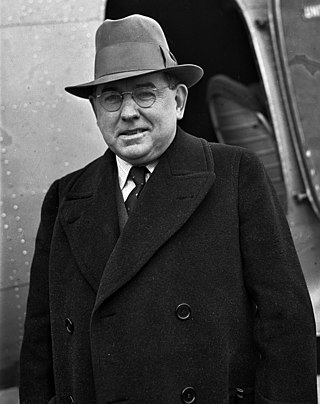
Peter Bernhard Kyne was an American novelist who published between 1904 and 1940. He was born and died in San Francisco, California. Many of his works were adapted into screenplays starting during the silent film era, particularly his first novel, The Three Godfathers, which was published in 1913 and proved to be a huge success. More than 100 films were adapted from his works between 1914 and 1952, many of the earliest without consent or compensation. Kyne created the character of Cappy Ricks in a series of novels.

The Three Godfathers is a 1916 American silent film featuring Harry Carey, based on a novel of the same name by Peter B. Kyne. The film was remade in 1919 as Marked Men, which also starred Carey. John Ford's 1948 remake of Three Godfathers was dedicated to Harry Carey Sr., the star of the first adaptation.

Marked Men is a 1919 American silent Western film directed by John Ford and starring Harry Carey. It is an adaptation of the 1913 novelette The Three Godfathers by Peter B. Kyne. Considered to be lost, it is a remake of the 1916 film The Three Godfathers, which also starred Carey.

The Three Godfathers is a 1913 novel by American author Peter B. Kyne, about a trio of bank robbers who become godfathers to a newborn child. The story was originally published in The Saturday Evening Post, illustrated by N. C. Wyeth.

Three Godfathers is a 1936 American Western film directed by Richard Boleslawski and released by Metro-Goldwyn-Mayer starring: Chester Morris, Lewis Stone, Walter Brennan and Irene Hervey. It was adapted from the novel of the same name by Peter B. Kyne. Three bank robbers find a newborn baby and his dying mother in the desert.
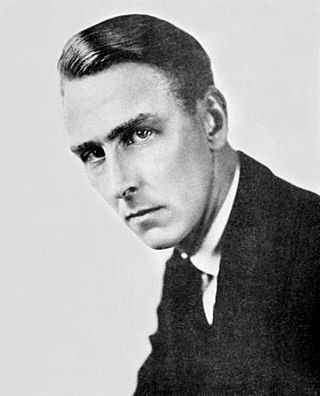
Percy Marmont was an English film actor.

Kindred of the Dust is a 1922 American silent drama film directed by Raoul Walsh, and starring his wife Miriam Cooper. It was based upon the novel of the same name by Peter B. Kyne. The film was the last independent picture for Walsh's production company, and the last film he and Cooper would make together. Today it is one of Walsh's earliest surviving features, and is one of only two non-D. W. Griffith features of Cooper's that still is known to survive.

The Tailor of Panama is a 1996 novel by British writer John le Carré. A 2001 film was released based on the novel.
The Three Godfathers may refer to:


















